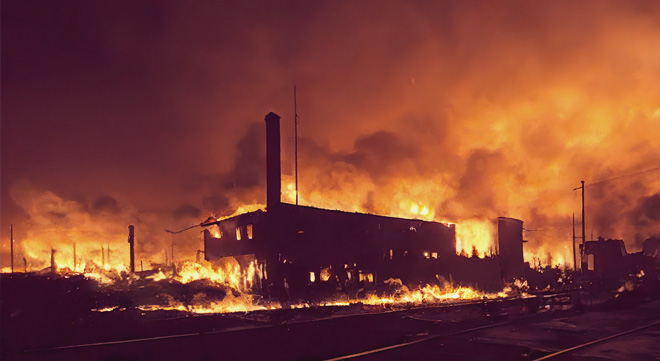The South African Special Risk Insurance Association (Sasria) has withdrawn circulars announcing it will no longer provide cover for damage to property caused by unrest if the national electricity grid collapses.
In a circulars to clients at the end of April, Sasria, which provides cover for strikes, riots, and other forms of civil unrest, said that from June 1 all its existing and new policies will exclude cover for electricity grid failure.
But Sasria withdrew the circulars on 5 May.
In a statement, Sasria said: “Various industry stakeholders have brought to our attention the insufficiency in respect of the implementation period stipulated in the circulars, and this has resulted in an undue and inadvertent difficulty for the affected parties.”
The April circulars said: “Your Sasria policy will not indemnify you for any loss, damage, cost, or expense, directly or indirectly caused by, arising out of, in any way or to any extent contributed to by, or in connection with electricity grid failure. This exclusion applies to any riot, strike, or public disorder (including civil commotion, labour disturbances or lockouts) directly or indirectly caused by, arising out of, in any way or to any extent contributed to by, or in connection with electricity grid failure.”
The stated-owned insurer defined electricity grid failure as “the total or partial failure of, interference with, interruption of or suspension of any electricity supply, in any manner and from any source, and for any reason (including fortuitous or malicious damage and any inability) which affects an entire or major part of any municipal area (including local, district, regional or any other local government area created by law)”.
The reinsurance market has been urging it to eliminate its cover for claims stemming from electricity grid failure because of the unprecedented levels of loadshedding, Sasria said.
Disaster management plans
GIB Insurance Brokers has advised companies to consider drawing up disaster management plans to prevent losses caused by a collapse of the grid.
“Although the likelihood of a total blackout is low, the consequences of such an incident could be devastating, making it worth preparing for,” GIB said.
A total grid collapse would likely result in widespread looting and unrest. Eskom would likely face challenges in restoring power because of severe infrastructure damage across the country.
“Although a total blackout presents several dangers, the primary threat is the time it takes to bring a system back up from that total collapse with estimates stretching into weeks rather than days,” said GIB sales operation consultant Guy Jameson.
If grid fails, some major aspects for companies to consider are the eventual failure of telecommunication networks, financial systems, and water and fuel shortages.
“This scenario could see current logistics and supply chains becoming unstable, increasing the potential for fuel shortages,” Jameson said.
“Generators requiring diesel could become less reliable than back-up solutions, such as solar-powered systems.”
It was now more essential than before that companies back up critical data regularly.
GIB said there is a definite push by insurers to avoid any losses associated with grid failure.
“This raises questions around consequential loss and whether it can be directly associated with a particular claim. If grid failure results in any other public supply being affected (for example, water), then any consequential loss might also not be covered,” Jameson said.
“If a defined event takes place at your premises as a direct result of grid failure (fire, stock deterioration that has caused financial loss to the business), there will be no cover. Should this occur, you need to consider the consequences of this with your insurance adviser so that a well-considered and structured response is in place,” he said.
Note: This article has been updated to reflect that Sasria has withdrawn the circulars.



